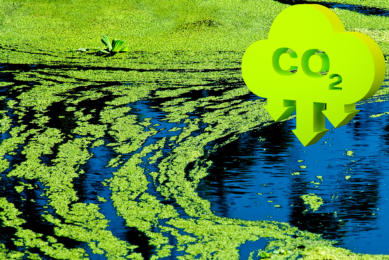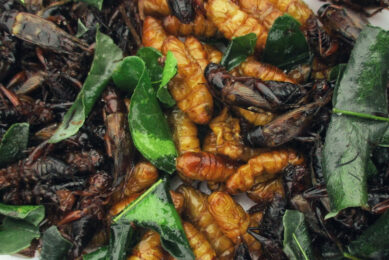GEA Niro initiative converts CO2 into fuel and animal feed
GEA Niro is leading a new initiative that will, when successful, significantly assist industries with a large CO2 footprint to become more environmental friendly and reduce operational costs spent on taxation of effluents.
The new process converts CO2 into fuel alcohol, proteins for animal feed and fertilizer for agricultural purposes.
The basic idea is to feed the CO2 to algae and transforming the algae to alcohol by fermentation and the residual bio matter to fertiliser. The exhausted yeast cells are then spray dried into protein powder for animal feed.
The principle is simple, however the process implementation is difficult due to the very large installations and large mass flows involved. GEA does, however, have the necessary core competence and correct organisation to handle projects of this magnitude.
Carbondioxide conversion
CO2 is scrubbed from processes with high CO2 concentrations such as rotary ovens of cement plants. The CO2 is then introduced to basins that contain large volumes of algae which consume the CO2 gas.
As algae are polysaccharides containing fermentable sugars, these are easily converted to alcohol through fermentation. The alcohol can then be recovered for use as fuel, leaving the remaining algae bio mass and yeast cream for drying into useful fertiliser and animal feed respectively.
The savings when converting CO2 this way can be significant especially as the worldwide tightening of penalties for discharging greenhouse gasses to the environment becomes increasingly severe.
Payback time
The payback period for such a transformation installation is, as yet, uncertain. The return on investment is determined largely by the tax rates and other penalties governments impose on CO2 emissions.
Robert Djernaes, Food Sales Group Manager of GEA Niro, however, is in no doubt that the cost savings will be significant. “The payback time on a process like this depends largely on how much the plant is paying in emissions taxes and to a lesser extent on the sales price of the produced fertilizer, alcohol and protein for animal feed.
“Ultimately though, reducing the cost for the plant will reduce the cost for the client and therefore the product’s consumer,” he said.
The process is, as yet, experimental. Currently there are extended tests running in Spain for growing algae in connection with a cement plant. Preliminary analysis suggests that it is a successful process for reducing CO2 emissions.
Related website: GEA Niro
Algae as a nutritional supplement for poultry











